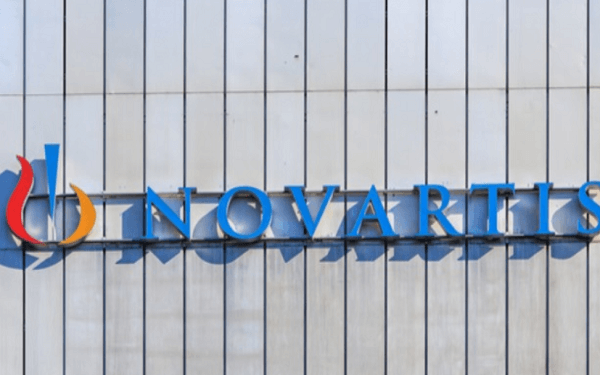
Four months after getting the green light in the U.K. for treatment of children with acute lymphoblastic leukemia (ALL), Novartis’ CAR-T treatment Kymriah, known as Tisagenlecleucel in the U.K., has gained approval for treatment of adults with diffuse large B-cell lymphoma (DLBCL).
The National Institute for Health and Care Excellence made its recommendation to provide Kymriah this morning. The CAR-T treatment will be offered to people whose disease has not responded or those whose disease has relapsed after treatment with two or more courses of chemotherapy, the agency said.
According to U.K. health data, there were 11,690 new cases of non-Hodgkin’s lymphoma (NHL) in England in 2015 with 4,688 of these being diffuse large B-cell lymphoma. CAR T-cell therapies are specifically manufactured for each individual patient. This involves taking some of the patient’s own white blood cells which are then re-engineered in a laboratory so they can recognize and attack cancer cells before being infused back into the patient.
Meindert Boysen, director of the Centre for Health Technology Evaluation at NICE said recommending the CAR-T treatment for another indication represents a “step forward for personalized medicine.” Boysen said it is exciting that patients will have an opportunity for a treatment that could provide significant health benefits.
“CAR T-cell therapy is expensive, however, the treatment is specific to each individual and could be a potential cure for some, although it is early days. Our recommendation for Tisagenlecleucel on the Cancer Drugs Fund means people can benefit while more data is collected,” Boysen said in a statement.
The list price for Tisagenlecleucel in the U.K. is £282,000 and it is given as a single intravenous infusion. Novartis agreed to offer the therapy at a confidential discounted price. It is estimated 200 people will be eligible for treatment each year in the U.K. and NHS England is working closely with several hospitals across the country to deliver this complex treatment, NICE announced this morning.
Regarding the deal signed with Novartis, John Steward, director of Specialized Commissioning at NHS England said the agency reached another deal with Novartis on pricing, which means more patients will benefit from the treatment.
“Providing the latest cutting edge treatments for patients through competitive drug deals and offering more personalized medicines like CAR T-cell therapy are just two of the ways that the NHS Long Term Plan will transform cancer care across the country,” Stewart said in a statement.
Kymriah, or Tisagenlecleucel, was approved as a treatment for ALL in September, after Novartis and U.K. health officials negotiated pricing for the drug. That approval came a month after NICE wasn’t so nice to another CAR-T program. In August, NICE rejected rival CAR-T treatment Yescarta, which is developed by Gilead Sciences. At the time, NICE said the cost of the therapy was too expensive to justify. Gilead ultimately struck a deal with NICE to provide access to Yescarta.
While the CAR-T treatments will be provided to a limited number of patients in the U.K., doctors are struggling to keep the hype of possible treatment in check across England, PharmaPhorumreported. During a conference in London, doctors discussed managing patient expectations when it comes to the revolutionary CAR-T treatments. Patients are well aware of the capabilities of CAR-T, but few are eligible or have the coverage to receive treatment.
At the same time that doctors struggle with hype, Gilead and Novartis are struggling to keep up with CAR-T manufacturing demands, PharmaPhorum said. The companies are looking at improving efficiency when it comes to manufacturing the CAR-Ts.
Source: Biospace